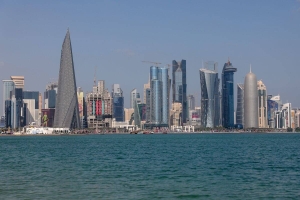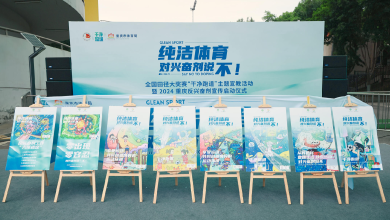Australian Aboriginal leader criticises Voice vote: ‘most indigenous Australians doing fine’
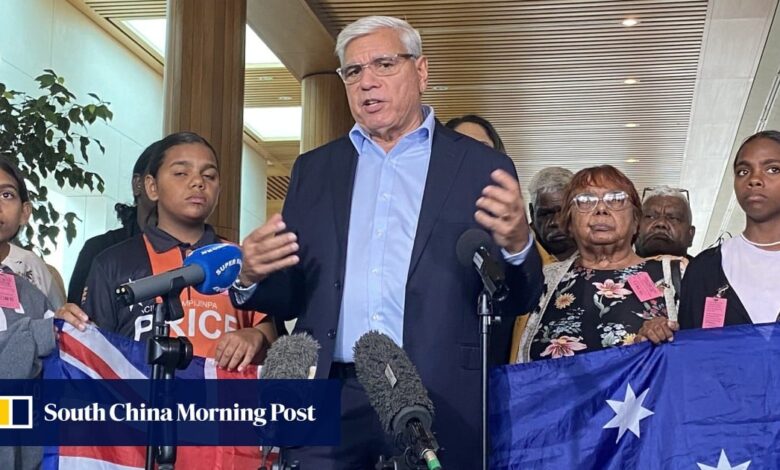
[ad_1]
“That’s exactly what people thought in the 1800s when they set up the protection regimes, when they set up segregation,” he said.
“The fact is, most indigenous Australians are doing fine. They go to school and work, run businesses and take care of their families, and they aren’t in prison. They don’t need a special indigenous voice,” he said. “It’s wrong to tell young people growing up in these families that are disadvantaged because they are indigenous.”
‘Did not solve the problems’: Malaysia’s bumiputra policy, five decades on
‘Did not solve the problems’: Malaysia’s bumiputra policy, five decades on
According to Mundine, while indigenous peoples had been able to prosper since being born into segregation, a referendum would put racial segregation back into the constitution.
He acknowledged there were remote indigenous Australian communities that were struggling and experiencing welfare dependency, but a targeted and efficient use of readily available funding and policies would do a better job in assisting them than a constitutional change.
The vote follows from the 2017 historic petition, the “Uluru Statement from the Heart” that was put forward by more than 250 first nations delegates to recognise indigenous rights through the “voice” – the subject of the referendum – followed by a treaty that acknowledged indigenous sovereignty and a healing process involving telling the truth of suffering through colonisation.
Megan Davis, a key architect of the Uluru Statement, condemned Mundine’s comments on Tuesday as “Trumpian misinformation”.
“The statement was an expression of peace and love to the Australian people, it is about belonging and unifying the nation, and I find it really repugnant the notion it could be associated at all with the language of the declaration of war,” Davis told broadcaster ABC.
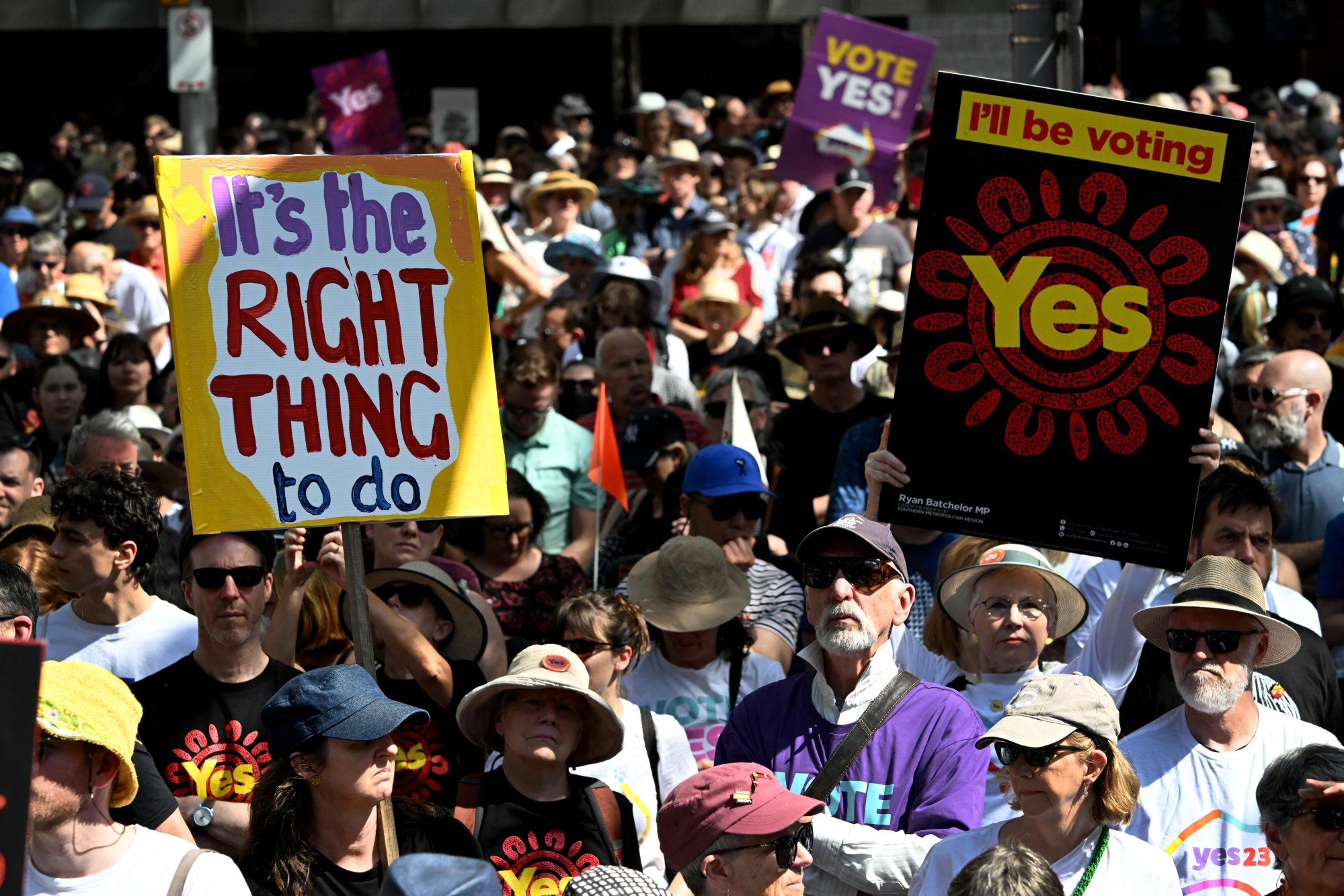
Australians and constitutional lawyers have so far criticised the “no” camp’s slogan “if you don’t know, vote no” for encouraging Australians to remain ignorant.
Other leading aboriginal leaders such as activist and lawyer Noel Pearson – who had the ear of past prime ministers such as John Howard – is due to speak at the press club on Wednesday after Mundine. According to drafts of his speech provided to local media, Pearson will appeal to Australians with a positive message that the referendum will be the country’s “first best chance and last best hope for a lasting settlement”.
First broached in July last year, the referendum initially garnered support from Australians after Anthony Albanese’s government made it an election promise.
However, all recent opinion polls have shown a decline in support for the vote, with vitriolic debate emerging between the yes and no camps.
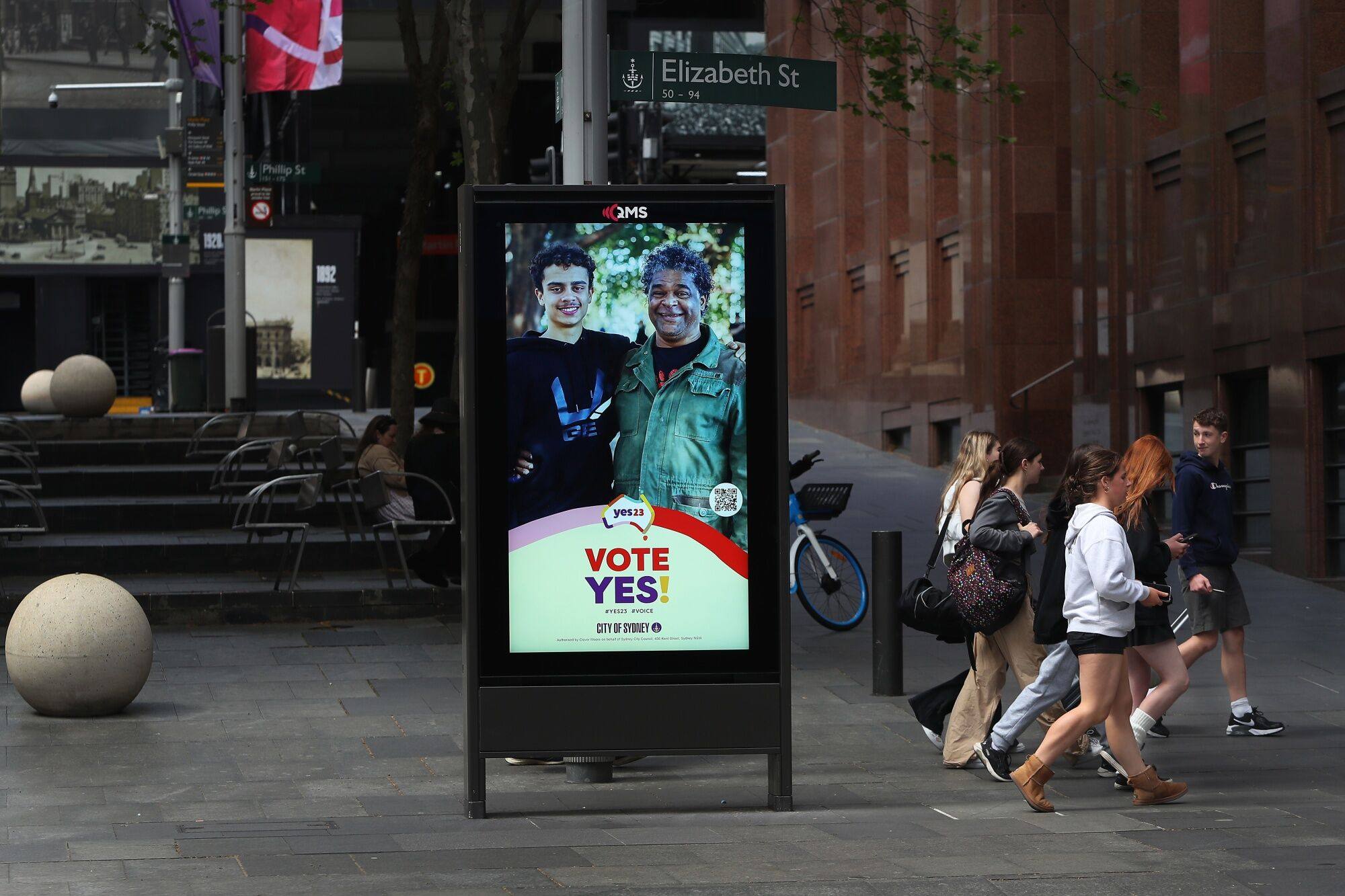
The AFR/Freshwater Strategy poll released on Monday showed a significant decline in support for the voice at 33 per cent, a 15-point drop since May.
The “no” camp has firmed up to 50 per cent and people who are switching to a no vote said the more they understood the referendum the less they liked it and many were concerned that financial reparations to first nations peoples would follow.
Most people who were looking to vote no said the referendum was detracting from the nation’s bigger priorities, especially cost of living and housing, the poll said.
The Essential poll by Essential Research last week said “no” voters were increasing and put the nation at 51 per cent “no” and 41 per cent for a “yes”.
The Redbridge poll has 38 per cent of the nation voting yes, and when asked generally, those polled said they thought the Albanese government should be focusing on climate change, cost of living, housing affordability and jobs.
Many Aboriginals feel angry about past wrongdoings, but these events cannot be undone. So as Aboriginals, we have a choice to continue to feel aggrieved, or to draw a line in history and not be captive to that past
Mundine said being “sorry” about the effects of colonisation must be followed by forgiveness, but a successful vote would not bring that into effect.
“It’s not enough that Australia says sorry. Indigenous people also need to forgive Australia as a nation,” he said.
“Many Aboriginals feel angry about past wrongdoings, but these events cannot be undone. So as Aboriginals, we have a choice to continue to feel aggrieved, or to draw a line in history and not be captive to that past.”
To help Aboriginal communities in need, he said the Australian government could begin with four steps: by being accountable with “the millions” spent on them, get indigenous children to school, encourage economic participation among communities and to face up to violence in the aboriginal communities in remote places.
Chinese-Australians feel they belong, but discrimination a factor: survey
Chinese-Australians feel they belong, but discrimination a factor: survey
Mundine was, however, challenged on his support for helping victims of “stolen generations” with extracting financial compensation, though he had rejected the notion of “victimhood”.
The stolen generations were the indigenous children who had been removed from their families by the Australian government and placed in non-indigenous homes.
To that, Mundine said the stolen generations directly suffered injustice and therefore should be compensated, whereas he did not agree with a handicap of general victimhood.
[ad_2]
Source link



